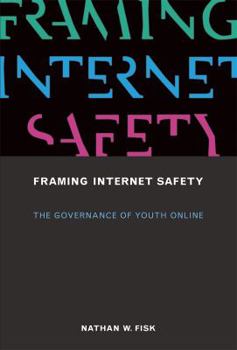Framing Internet Safety: The Governance of Youth Online
(Part of the The John D. and Catherine T. MacArthur Foundation Series on Digital Media and Learning Series and The John D. and Catherine T. MacArthur Foundation Series on Digital Media and Learning Series)
An examination of youth Internet safety as a technology of governance, seen in panics over online pornography, predators, bullying, and reputation management.
Since the beginning of the Internet era, it has become almost impossible to discuss youth and technology without mentioning online danger--pornography that is just a click away, lurking sexual predators, and inescapable cyberbullies. In this book, Nathan Fisk takes an innovative approach to the subject, examining youth Internet safety as a technology of governance--for information technologies and, by extension, for the forms of sociality and society they make possible. He argues that it is through the mobilization of various discourses of online risk that the everyday lives of youth are increasingly monitored and policed and the governing potentials of information technologies are explored.
Fisk relates particular panics over youth Internet safety to patterns of technological adoption by young people, focusing on the policy response at the federal level aimed at producing future cybercitizens. He describes pedagogies of surveillance, which position parents as agents of surveillance; the evolution of the youth Internet safety curricula, as seen through materials on cyberbullying and online reputation management; and, drawing on survey results and focus groups, parent and child everyday practice. Finally, Fisk offers recommendations for a "cybersafety of everyday life," connecting youth Internet safety to trends in national infrastructure protection and corporate information assurance.





